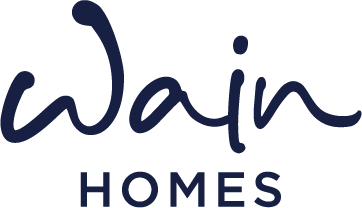The following terms set out the principles agreed between DLUHC and each Participant Developer in relation to: (i) self-remediation and/or mitigation works or at our discretion funding of them on all buildings of 11 metres and above in England; and (ii) the withdrawal from, and/or the reimbursement of, the Building Safety Fund and ACM Funds (as applicable).
DLUHC and each Participant Developer intend to enter into legally-binding full form documentation in the coming months that expands, supplements and gives effect to the principles set out below, but which otherwise is consistent with them.
The following principles are without prejudice to any similar discussions or arrangements a Participant Developer may be having, or may have, with any of the Devolved Administrations in respect of that Participant Developer's activities in Wales, Scotland and Northern Ireland (as applicable).
Self-remediation and/or mitigation work
Participant Developers:
Each Participant Developer that has played a role in the development or refurbishment of Buildings (as defined below).
Buildings:
All buildings in England of 11 metres and above that: (i) require remediation and/or mitigation work to address life-critical fire-safety issues; and (ii) have been built or refurbished in the 30 years prior to 5 April 2022 by a Participant Developer ("Buildings").
Obligation:
Each Participant Developer will commit to, among other obligations to be agreed in the full form documentation, fund and (subject to building owner and Local Planning Authority consent) undertake or procure at its own cost (which shall include rights of recovery through NHBC any insurance policy) as quickly as reasonably possible all necessary remediation and/or mitigation work to address life-critical fire safety defects.
Such work will address life-critical fire-safety defects arising from design, construction or refurbishment defects on Buildings which a Participant Developer played a role in developing or refurbishing (as applicable). This excludes situations where defects have arisen solely as a result of any alterations and/or failure to maintain following completion of construction or refurbishment, as the case may be (the above being, the "Obligation").
Where a Participant Developer:
- at the option of the building owner I responsible party, funds (having given due consideration to the building owner I responsible party's proposals and reasonably considering that such funding and proposed works will be sufficient to discharge the Obligation) but does not itself carry out the work necessary to address life critical fire safety defects; or
- having used best endeavours, and having then engaged with DLUHC on options to resolve the issue of access, is refused access to a building to carry out the work necessary to address life critical fire safety defects,
it will have no further liability for those works pursuant to the Obligation.
The Obligation extends to any role the Participant Developer has played, whether on their own behalf or on behalf of others (including in relation to development for registered providers under Section 106). However, it excludes work carried out solely as a contractor (where the nature of the profit sought is a contracting rather than development profit).
The scope of works (or level of funding) will not be required to cover any betterment work which goes beyond that required in order to meet the Standard.
Standard:
Buildings will be assessed and remediated proportionately to the standard as articulated in the PAS9980 methodology and other industry standards relevant to ensuring the building meets a life-critical safety standard. DLUHC will work with each Participant Developer, or the Home Builders Federation on behalf of that Participant Developer (as applicable), to agree the means of auditing and assuring this standard (the "Standard").
Monitoring:
Each Participant Developer will commit to demonstrate that they have either provided funding for or carried out remediation and/or mitigation works in accordance with the Standard as quickly as reasonably possible; and DLUHC will work with each Participant Developer, or the Home Builders Federation on behalf of that Participant Developer (as applicable), to agree a mechanism in the full form documentation for each Participant Developer to demonstrate on an ongoing basis that such funding or remediation and/or mitigation work is being progressed as quickly as reasonably possible.
Duty to inform:
The full form documentation will contain provisions requiring Participant Developers to report periodically to DLUHC (or such other body as may be nominated by DLUHC) on:
- the progress of its self-remediation and/or mitigation works;
- the timeline for completing its self-remediation and/or mitigation works; and,
- steps taken to identify further Buildings that require remediation and/or mitigation works to be carried out.
The accuracy and completeness of such information will be subject to periodic, formal attestation reflecting the best of their information, knowledge and belief having made all reasonable enquiries by the directors of the relevant Participant Developer.
Each Participant Developer commits to provide DLUHC with all relevant data that it has within its possession or control having made all reasonable enquiries in relation to buildings that have been built or refurbished in the 30 years prior to 5 April 2022 by that Participant Developer, and further commits to provide any such additional data that DLUHC may reasonably request from time to time.
Audit and verification:
The full form documentation will contain appropriate audit and verification provisions to ensure that, to the best of their information, knowledge and belief having made all reasonable enquiries:
- for Buildings that have been built or refurbished in the 20 years prior to 5 April 2022, information supplied by each Participant Developer is complete, true, accurate and not misleading; and
- for any other Buildings, information supplied by each Participant Developer will be as accurate as reasonably possible having regard to the age of those Buildings.
Claims:
Nothing in these Agreed Principles should be construed as an admission of liability on the part of the Participant Developer.
The full-form documentation will make clear that all civil claims (including under contracts of insurance/warranties and against contractors) available to Participant Developers, building owners / responsible parties, leaseholders and/or residents' management companies remain capable of assertion to their fullest possible extent.
Dispute resolution:
DLUHC will work with each Participant Developer, or the Home Builders Federation on behalf of that Participant Developer (as applicable), to agree an independent and fair mechanism in the full form documentation for resolving disputes between developers and, for example, managing agents, building owners/ responsible parties, leaseholders, lenders and/or insurers in relation to any self-remediation and/or mitigation works.
Engaging leaseholders:
The full form documentation will contain provisions on, among other things:
- the process by which leaseholders, building owners / responsible parties, residents and/or residents' management companies of affected Buildings should be engaged by Participant Developers (which will include a requirement for Participant Developers to update relevant parties frequently on the progress of the remediation and/or mitigation works, and provide them with the latest delivery plans for such remediation and/or mitigation works); and
- the mechanism through which leaseholders, residents and/or residents' management companies can engage with the relevant Participant Developer.
Withdrawal from, and/or reimbursement of, the Building Safety Fund and ACM Funds
Building Safety Fund and ACM Funds (Withdrawal):
In respect of Buildings which they played a role in developing or refurbishing, each Participant Developer will commit to: (i) identify Buildings that are proposed to be remediated with funds from the Building Safety Fund ("BSF") or ACM Funds; and (ii) engage with the relevant building owners/responsible parties and leaseholders to ensure the Participant Developer funds and undertakes all necessary remediation and/or mitigation work to address life-critical fire-safety issues, in place of funds that would otherwise have been received from the BSF or ACM Funds.
Building Safety Fund and ACM Funds (Reimbursement):
In respect of Buildings which they played a role in developing or refurbishing, each Participant Developer will commit to reimburse the BSF and ACM Funds for all funding allocated and provided by the BSF or ACM Funds in relation to work completed, in progress or approved, provided DLUHC applies such reimbursed funds to carry out remediation and/or mitigation works on Buildings of 11-18 metres. The expectation is that BSF and ACM Funds will to the extent reasonably practicable seek to return Buildings to the Participant Developers, having regard to such factors as the state of approval that the building has achieved within those funds and the implications for, without limitation, the timeliness of the works and existing contractual commitments. DLUHC and the Participant Developers will engage as a matter of urgency to seek to agree which Buildings should be so returned to Participant Developers.














